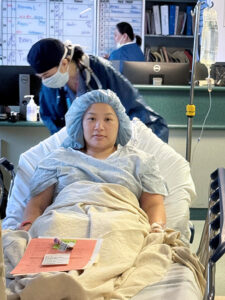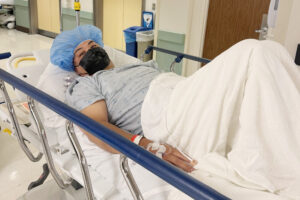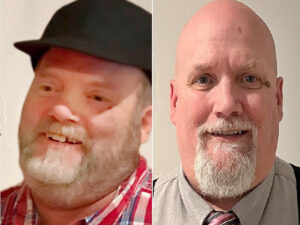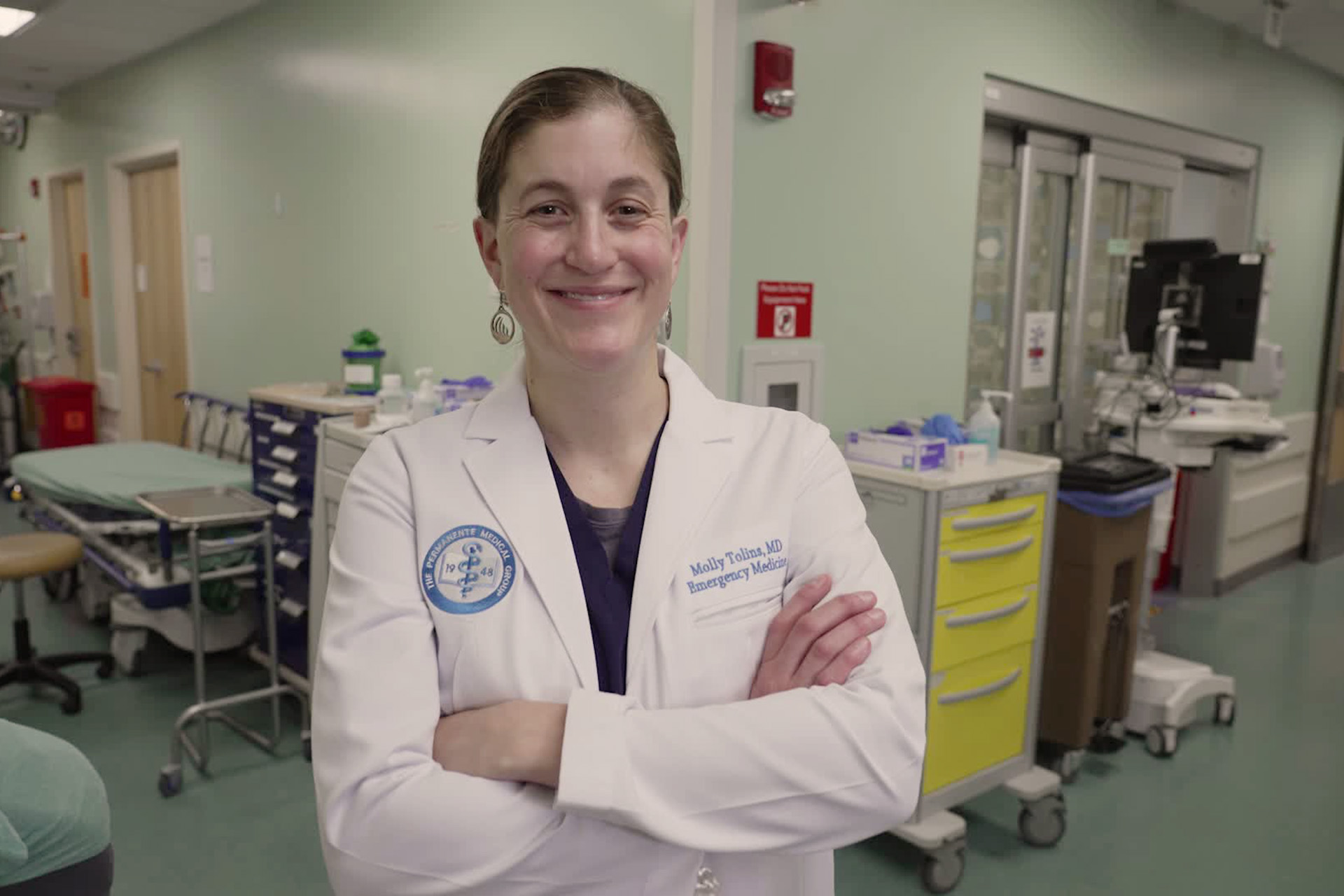They are four Kaiser Permanente employees who work in different locations and in very different jobs, but they have one unusual and remarkable life experience in common.
They saved a loved one’s life by donating a kidney.
Like these employees, about 6,900 people nationwide donated their kidneys in 2023, according to the Organ Procurement and Transplantation Network. (Others received kidneys from people who died.)
Read about 4 employees who gave the gift of life to their ailing loved ones.
Lisa Nguyen, optician, Kaiser Permanente San Jose
Lisa Nguyen’s brother was born with kidney disease, but he kept his health problems quiet.

That changed in 2023, when her 41-year-old brother told her and their 2 sisters he needed a kidney transplant. He was on the national kidney transplant waiting list for 2 years, but he wasn’t close to getting a kidney.
And he was suffering.
“He had no energy to work,” said Nguyen, who has worked at KP for 6 years. “He was so tired and weak.”
Her brother, Randy Nguyen, was on dialysis, a treatment for people whose kidneys are failing. Dialysis helps do the work of kidneys by removing waste products and extra fluid from the blood. But the treatment left him drained and burdened with a restrictive diet and curtailed liquid intake.
“I wanted to give him a kidney so he would have a better quality of life,” she said.

Nguyen embarked on the 9-month journey to become a donor, which included pre-surgery lab work and preparation. Although Nguyen said she was scared, the mother of 2 young children was assured the recovery would be like a cesarean section. In August 2024, the siblings did the transplant.
“Looking at him now makes me feel happy because he hasn’t felt this much energy in so long,” Nguyen said. “It was a life-changing experience. It brought us closer together. We talk more often and have deeper conversations.”
Michael Boucher, director of Data, Reporting, and Analytics, IT
Michael Boucher’s brother also needed a kidney. Thirty years ago, his youngest brother Kyle, 27, at the time, became seriously ill. Although it was initially thought to be the flu, it turned out his kidneys were not functioning. No one knew why.

His brother was put on dialysis, which was hard on his body.
“I remember the severe leg cramps from which he suffered if fluids were removed too quickly,” he said.
Of his parents and other brother, Boucher was the only one who was a 100% match.
“As a parent who raised four children, I can only imagine what it was like for my parents to have 2 of their 3 sons undergoing surgery simultaneously,” he recalled. “The outcome was successful, and my brother Kyle has had the kidney for 30 years now.”
Reflecting on the experience, he says it was one of those life-defining moments, likening it to the birth of a child.
The 9-year employee counsels others who are considering organ donation and encourages people to sign up to be a donor through their driver’s license application.
Said Boucher: “Think about how you can save someone’s life.”
Diana Yee, senior communications consultant, Program Offices
Diana Yee’s sister, Lillian Siu, was a healthy woman in her 50s, but 2 years ago she started feeling tired all the time. She went to the doctor, and lab work revealed she had kidney failure.

Her sister had already gone through a difficult time in her life after her husband passed away when their daughter was just 3.
“It was time for her to live life a little, and then she gets this diagnosis,” Yee said.
Her sister slept 20 hours a day. She wasn’t able to fully be present for her daughter or continue working as a hairdresser.
“She’s my baby sister,” she said. “I value my siblings. I already lost a brother when we were kids. Of course I’m going to help her.”
In October 2024, Yee put aside her nerves about the surgery and donated a kidney to her sister.
“If I had a third kidney, I would donate that, too,” Yee said. “People ask if I can feel a difference. No, I don’t feel a difference.”
This past February, Siu watched her daughter become Miss Chinatown USA.
Said Yee, “I was so happy to see her enjoy that moment.”
Keying Tom, medical assistant, Oakland Medical Center
Ten years ago Keying Tom’s husband found out he had diabetes and hypertension. Raymond Tom was also told his kidneys were failing.
Keying Tom was shocked. As a former health coach, she has worked with patients living with similar chronic conditions who have fully functioning kidneys.
Tom, a 7-year KP employee, didn’t like the idea of dialysis. So, she immediately decided her husband was going to get a transplant, and she would give him a kidney.
However, Tom ultimately learned she was not a good match for her husband.
But Tom didn’t let that stop her. She did a “swap,” or paired kidney exchange where two or more incompatible donor-recipients exchange organs, allowing each recipient to receive a compatible organ.
Her husband got a new kidney in 2015. Since then, he’s had more energy to focus on fatherhood and his career.
He’s able to travel, something he wouldn’t have been able to do on dialysis. Last year, the couple went to China to visit Keying Tom’s mom, and they have a return trip planned for later this year.
“I have never felt restricted because of having just one kidney,” she said, noting that the donation also motivated her to take better care of herself. “Most people have 2 kidneys and are born to give. This has been the guiding belief on our path to a living organ transplant. If you know someone needs it, just take action.”




